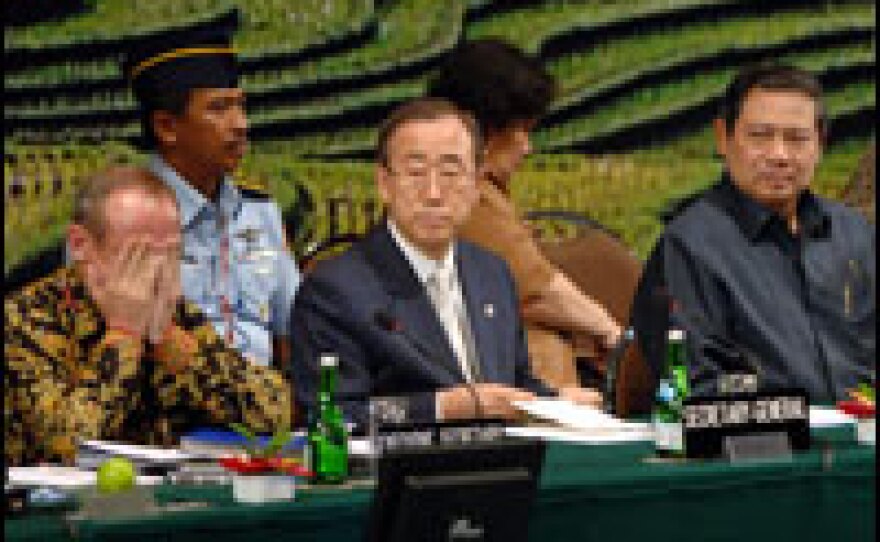What President Bush Said: "Let us create a new, international clean-technology fund, which will help developing nations like India and China make greater use of clean energy sources. And let us complete an international agreement that has the potential to slow, stop, and eventually reverse the growth of greenhouse gases. This agreement will be effective only if it includes commitments by every major economy and gives none a free ride. The United States is committed to strengthening our energy security and confronting global climate change. And the best way to meet these goals is for America to continue leading the way toward the development of cleaner and more efficient technology."
Analysis: An international agreement exists: the Kyoto Protocol, signed by virtually every country in the world except the U.S. What President Bush is proposing is an alternate track, one crafted by his administration and to include the major emitters of greenhouse gases, including China and India. The idea is to invent our way out of climate change, rather than demand cuts in greenhouse gas emissions. The problem is that almost no one takes that idea seriously; the rest of the world is committed to the international regime run by the United Nations.
The Bush proposal is seen as a way to dodge the mandatory commitments in the U.N. system. As for an international fund, discussions are under way with Japan and Great Britain to raise $2 billion for such a fund. Congress would have to approve it, and Congress has been reluctant in the past to approve international climate deals that don't require developing countries to cut their greenhouse gas emissions.
Outlook in Congress: There are at least a half-dozen proposals working their way through committees in Congress to establish a system for the U.S. to start lowering its emissions of greenhouse gases, which continue to rise. These face formidable opponents who see limits on emissions as economy-busters. But there is momentum from the states and from the public that should lead to some type of system to put a cap on emissions that will gradually tighten over time. Such a bill is likely to include a "market" — in which businesses could buy and sell permits to emit carbon, lessening the pain of a cut in their own carbon dioxide emissions.
On the Campaign Trail: The Democratic candidates have all come down in favor of mandatory cap-and-trade systems as envisioned in most of the congressional bills. They have also emphasized the need to join the international community of nations that have signed onto the Kyoto Treaty — at least in whatever system follows Kyoto when it expires in 2012. GOP hopeful Sen. John McCain of Arizona is also a supporter of a cap-and-trade program — and a firm believer that the threat of climate change is serious and imminent. Other GOP candidates have not taken a strong or specific stance on climate-change policies. Former Massachusetts Gov. Mitt Romney has proposed voluntary efforts to lower emissions of greenhouse gases.
Copyright 2023 NPR. To see more, visit https://www.npr.org. 9(MDM3NjYwMjA5MDE1MjA1MzQ1NDk1N2ZmZQ004))



